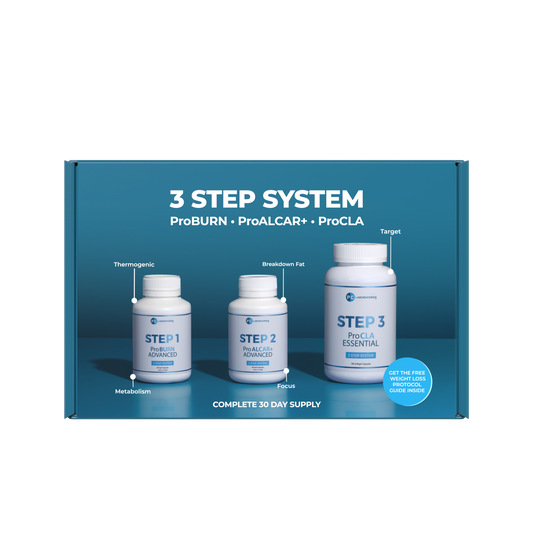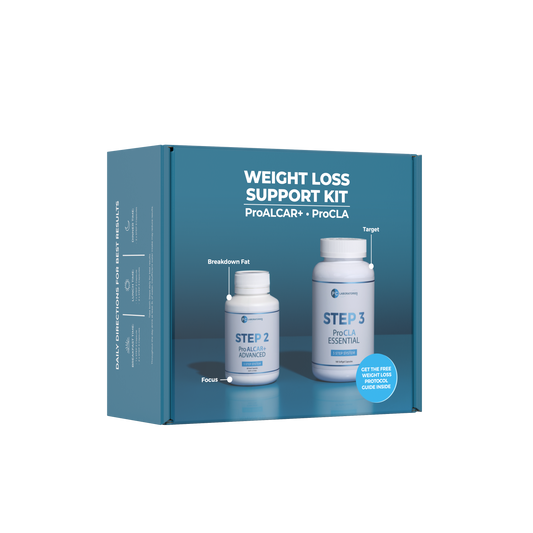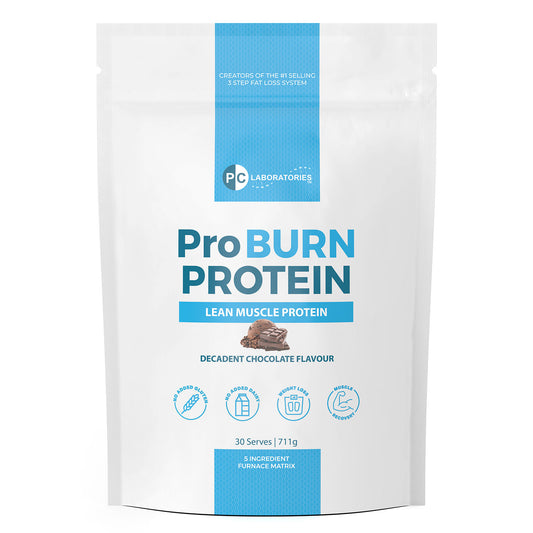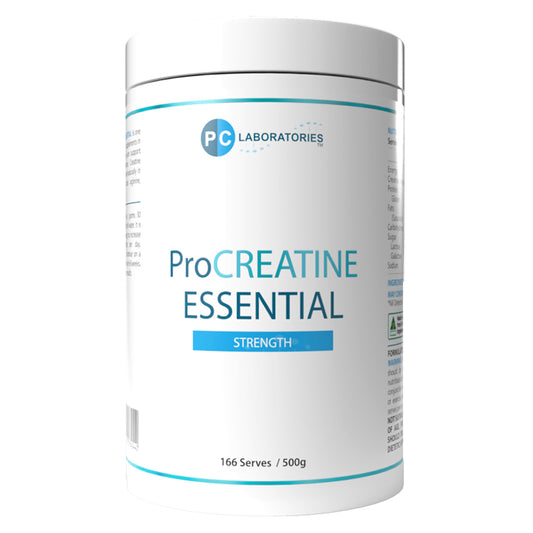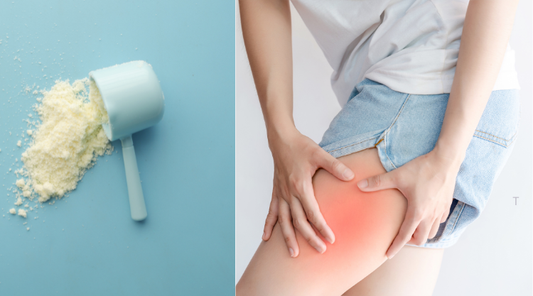Perimenopause can prove to be a tricky time for some women, igniting changes in the menstrual cycle and hormone levels. It isn’t an illness as it’s often portrayed to be, but a natural stage of life. This transitional period, which typically begins in a woman's 40s, marks the years leading up to menopause. Menopause is the time when menstrual cycles cease completely.
Hormonal fluctuations during perimenopause can lead to various symptoms, but understanding these changes can empower women to manage them effectively. Thyroid health, insulin response and progesterone levels must all be considered during perimenopause. Resolving these issues can be the key to getting back your energy, libido and smaller waistline.
Understanding Perimenopause
Perimenopause refers to the transition phase before menopause, as the term peri refers to ‘around’. This period can last several years, often accompanied by changes in menstrual cycles and hormonal fluctuations. Menstrual cycles can become longer, shorter or very irregular with hormonal changes. It's important to recognise that perimenopause is a natural phase of life, not a medical condition.
Symptoms such as hot flashes, night sweats, and mood swings are common and result from hormonal changes, particularly the decline in estrogen and progesterone levels. Experiencing these symptoms is considered common, yet not necessarily normal. This is an important realisation, as supporting the body naturally during this time can bring great relief.
The Impact Of Hormonal Swings
As women approach perimenopause, the ovaries gradually produce less estrogen and progesterone. Often, the ratio of oestrogen to progesterone becomes imbalanced, and oestrogen dominates. Or there are sudden drops in hormones like oestrogen post-ovulation, and PMS symptoms become particularly nasty. This hormonal shift can lead to various symptoms:
- Hot Flashes and Night Sweats: Fluctuating estrogen levels can affect the body's temperature regulation, leading to sudden feelings of heat and sweating. Excess sweating can also be associated with dysregulated cortisol, a common issue for women.
- Mood Swings and Irritability: Hormonal changes can influence neurotransmitters in the brain, contributing to mood fluctuations. A lack of progesterone means that we can be feeling anxiety and tension worsen over time. Especially in the late luteal phase, when we should be feeling the calming effects of progesterone.
- Sleep Disturbances: Decreased estrogen levels can affect sleep patterns, leading to insomnia or disrupted sleep.
- Weight Gain: Metabolic changes during perimenopause can lead to weight gain, especially around the abdomen. Stress and insulin resistance need to be considered for this issue.
These symptoms can be managed with appropriate lifestyle adjustments and a nutritious diet that works for your energy needs. The type of body movement and practices like fasting work differently in younger years, as our bodies can be more resilient. Strict eating and intense exercising can stress the mind and body greatly in perimenopause, so you may need to take a different approach.
The Impact of Stress and Cortisol
Chronic stress leads to elevated cortisol levels, which can disrupt hormonal balance. High cortisol levels can interfere with the production and function of estrogen and progesterone, exacerbating perimenopausal symptoms. In cases of chronic stress, we can develop a general adaptation syndrome. This is where the body can start to downregulate cortisol in the daytime, yet it is produced in the night-time where it hinders sleep.
The body will prioritise energy to make stress hormones rather than reproductive hormones like progesterone. It is because we are wired for survival, and being in a constant fight-or-flight mode drains our energy. Implementing the diet and lifestyle changes in this article can help regulate cortisol levels and support hormonal health.
The Role of Liver and Gut Health
The liver and gut play crucial roles in hormone metabolism and detoxification. A compromised liver function can impair the body's ability to process and eliminate excess hormones, leading to an imbalance. Similarly, gut health influences hormone levels through the gut-brain axis and the microbiome's impact on estrogen metabolism. Supporting liver and gut health through a balanced diet, adequate hydration, and probiotics can aid in maintaining hormonal balance during perimenopause.
Hormonal Imbalance: When Estrogen Dominates
During perimenopause, a common hormonal imbalance is estrogen dominance, where estrogen levels remain high relative to progesterone. This imbalance can lead to symptoms such as weight gain, mood swings, and irregular periods. Addressing this imbalance through lifestyle changes, dietary adjustments, and, if necessary, medical intervention can help restore hormonal equilibrium.
Thyroid Health Is Key
Thyroid health is an ill-managed aspect for women of all ages. It is often tested too late, and just the Thyroid Stimulating Hormone (TSH) will be done. This indicates how the brain is talking to the thyroid, not how the gland is functioning or if antibodies are present.
Try for a full thyroid panel if you are recently postpartum or suspect you may have an imbalance. Look for hypothyroid symptoms like cold hands and feet, swollen neck, heavy fatigue, weight gain, hair loss, low mood and sluggish digestion. Hyperthyroidism can present as unexplained weight loss, racing heart and anxiety.
Lifestyle Support
Our daily lives will determine what we are exposed to in the environment, how resilient the mind feels to stressors and what fuel it has access to. Adopting healthy lifestyle practices can significantly alleviate perimenopausal symptoms, giving a new lease of life. These practices not only alleviate symptoms but also promote overall health during perimenopause. Try adding these:
1. Balanced Diet: Incorporate fibre-rich foods, healthy fats, quality protein and antioxidants to support hormonal balance.
2. Regular Exercise: Engage in strength training and aerobic exercises to maintain muscle mass and metabolic health. Walking is vital for weight management in perimenopause. Try to go for a gentle 5-10 minute walk after meals, to support insulin uptake.
3. Adequate Sleep: Prioritise quality sleep to support hormonal regulation and overall well-being.
4. Stress Management Techniques: such as mindfulness, breathing techniques, yoga, and regular physical activity.
5. Hydration: Maintain proper hydration to support metabolic processes and reduce bloating. Try for at least 3-4 L of water daily, with added minerals or electrolytes.
6. Sunlight Exposure: Regular exposure to natural light helps regulate circadian rhythms and supports vitamin D synthesis. Always test levels before supplementation, and remember it doesn’t do the job that real sunlight does.
Nutrition For Happy Hormones
Nutrition during perimenopause determines how well we detox, produce energy and reduce inflammation. Certain foods can make a huge difference for hormonal health during perimenopause. Try to have these daily:
- Fibre-Rich Foods: Whole grains, fruits, and vegetables aid in oestrogen metabolism, cholesterol levels and support gut health. The gut loves diversity when it comes to food, so eat the rainbow in fruits and veggies.
- Polyphenol-Rich Foods: Berries, green tea, and dark chocolate have antioxidant properties that support cellular health. These compounds support our immune system and fight off infections in the gut, respiratory and reproductive organs.
- Brassica Family Vegetables: Broccoli, kale, and Brussels sprouts contain compounds that support estrogen metabolism. They support the excretion of excess hormones and general toxins via the liver and bowels.
- Omega-3 Fatty Acids: Fatty fish, flaxseeds, and walnuts provide anti-inflammatory benefits and support heart health. Cholesterol makes hormones, so don’t stick to any low-fat fad diets.
- Healthy Fats: Avocados, olive oil, and nuts provide essential fatty acids that support hormonal function. Our brain is made up of a fatty bilayer, so fuel up with good fats to protect your cognition.
Perimenopause Supplements That Work
> Glutamine: Supports gut health and may alleviate bloating and digestive discomfort. It is an amino acid that helps to repair tissue, especially muscles. We love ProGlutamine Essential by PC Laboratories.
> Green Tea Extract: Contains antioxidants that support metabolic health and may aid in weight management.
> Collagen: Supports skin elasticity and joint health, which can be affected during perimenopause. ProBurn Protein contains both collagen peptides and green tea extract.
> L-Carnitine: May support fat metabolism, hunger regulation and energy production. ProALCAR Essential is an amazing source of Carnitine, which is readily bioavailable.
> Broccoli Sprout Extract: Contains sulforaphane, which supports detoxification processes.
> Vitamin B6: Supports neurotransmitter function and may alleviate mood swings.
> Creatine: Supports muscle mass and strength, which can decline during perimenopause. ProCreatine Essential provides a quality Creatine Monohydrate.
Lift Heavy In Peri
Strength training during perimenopause offers huge benefits that address women's physiological and metabolic challenges. As estrogen levels decline, women often experience increased insulin resistance, leading to higher blood sugar levels and a greater risk of type 2 diabetes. Engaging in regular resistance training enhances insulin sensitivity, better glucose uptake and utilisation by muscles.
Ladies, strength training plays a pivotal role in weight management. By preserving and building lean muscle mass, it counteracts the natural decline in muscle tissue that accelerates around age 30. This preservation of muscle mass helps maintain a higher resting metabolic rate, facilitating more efficient calorie burning even at rest.
Cognitively, strength training has been linked to improved brain function. Regular resistance exercises stimulate the production of brain-derived neurotrophic factor (BDNF), a protein associated with cognitive health, memory, and mood regulation. It supports the regulation of hormones such as cortisol and growth hormone, which can fluctuate during perimenopause, thereby mitigating symptoms like mood swings and sleep disturbances.
Lifting weights is fantastic for bone density, which often decreases due to lower estrogen levels. These exercises stimulate bone remodelling, enhancing bone mineral density and reducing the risk of osteoporosis. Incorporating strength training into a regular fitness routine during perimenopause is a proactive way to care for your overall health and well-being.
Final Thoughts
Perimenopause is a natural stage of life that can bring about various hormonal changes. By understanding these changes and adopting supportive lifestyle practices, women can manage symptoms effectively and start to feel like themselves again. Or maybe even a stronger, happier version!
References
Gonzales, D. C. (2024). Perimenopause and insulin resistance: Understanding the connection and its impact on women's health. Dr. Carolyn Gonzales. Retrieved from https://www.drcarolyngonzales.com/blog/perimenopause-and-insulin-resistance-understanding-the-connection-and-its-impact-on-womens-health
Smith, C., & Sims, S. (2023). Strength training during perimenopause. Stanford Center for Longevity. Retrieved from https://longevity.stanford.edu/lifestyle/2023/07/11/strength-training-during-perimenopause/
Wentz, I. (2025). 09: Thriving in perimenopause. Thyroid Pharmacist. Retrieved from https://thyroidpharmacist.com/articles/podcast/ep-9/
Frontiers in Physiology. (2023). Comparative efficacy of different resistance training protocols on bone mineral density in postmenopausal women. Retrieved from https://www.frontiersin.org/articles/10.3389/fphys.2023.1105303/full


